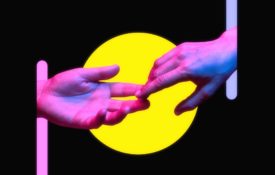-

Teaching: Are Romantic Relationships Actually Good for Mental Health?
Few psychologists realize that a potent risk factor for psychological disorders has been hiding in plain sight: people’s dissatisfaction with their current romantic relationship. Teach critical thinking about risk factors and relying on scientific evidence rather than intuition. Visit Page
-

Communicating Psychological Science: The Lifelong Consequences of Early Language Skills
“When families are informed about the importance of conversational interaction and are provided training, they become active communicators and directly contribute to reducing the word gap (Leung et al., 2020).” Visit Page
-

Teaching: Big Smile—Distant Diversity Drives Emotion Culture
Why do people from some regions tend to be more extroverted and agreeable than those from other regions? Teaching about the ancestral diversity theory of culture and human emotion. Visit Page
-

Teaching: Phenomenological Control—What Is Reality, Really?
Phenomenological control refers to the ability to construct subjective experiences that distort objective reality. Teaching tips and guidelines for this fascinating area of research. Visit Page
-
There Are Better Ways to Study That Will Last You a Lifetime
Picture your preschooler’s teacher pulling you aside at pickup time to say that your child was “not taking responsibility” for learning the alphabet. You’d be puzzled and probably angry. It’s not up to a 4-year-old Visit Page
-

Productive Failure and the New Frontiers of Psychology Education
During the Teaching Institute at APS’s 2023 international convention in Brussels, teachers of psychology from around the world learned from experts and peers how novel empirical approaches might strengthen their own teaching. Visit Page

